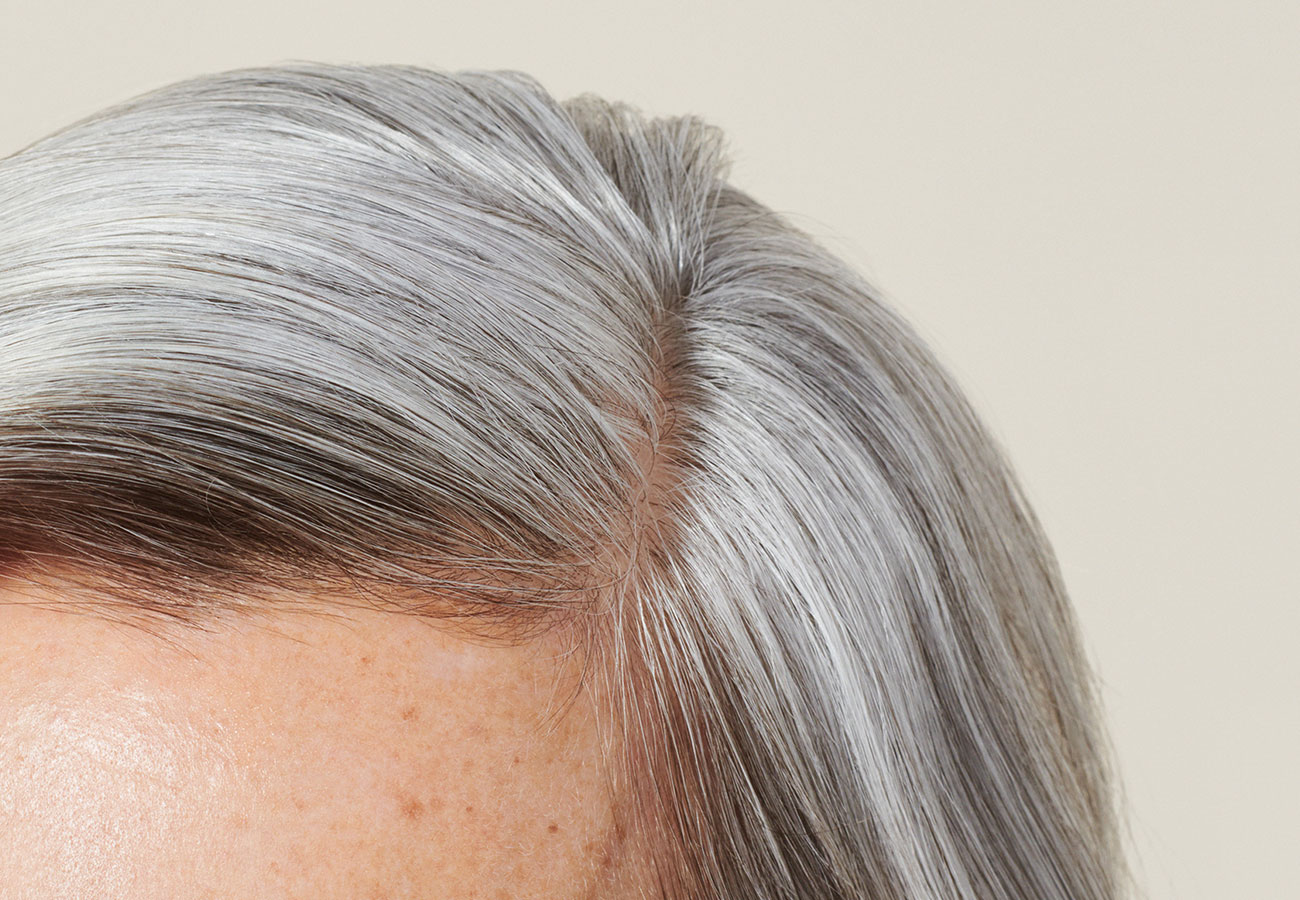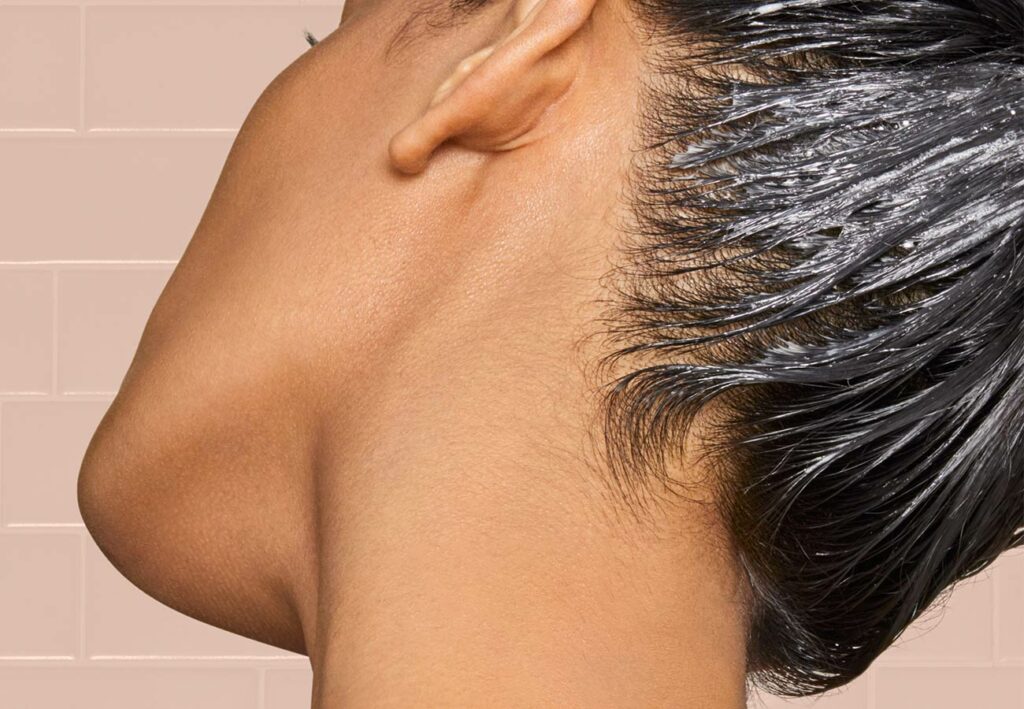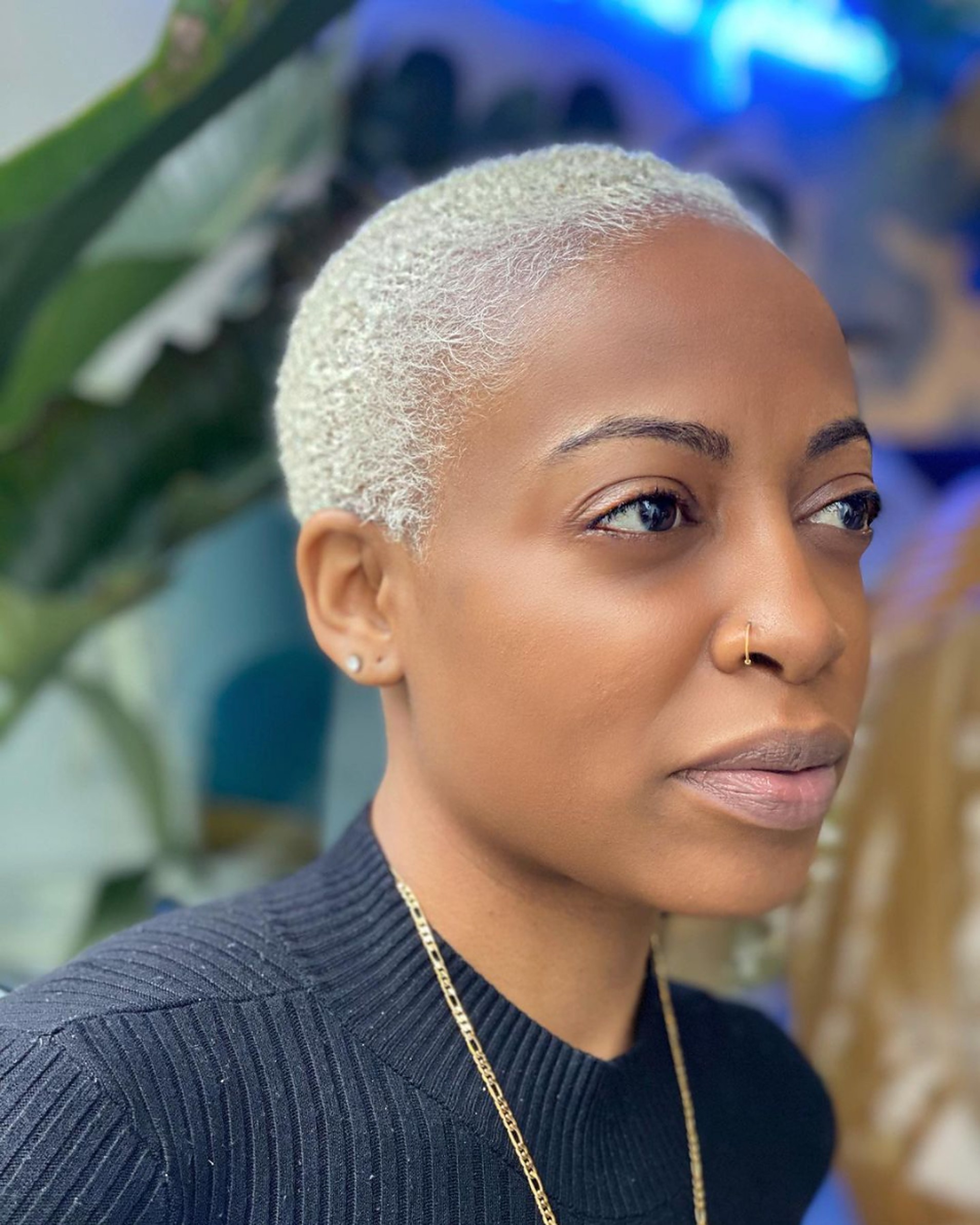So, how do you tell the difference between momentary flakes and general dryness? And on top of that, how do you diagnose either condition? For the most top-shelf intel on the topic, we sought the wisdom of Dr. Heather Rogers, dermatologist and founder of Doctor Rogers RESTORE skincare, as well as Modern Dermatology in Seattle.
Flaky scalp vs. dry scalp
Here is Dr. Rogers’ insight on both overarching conditions, to differentiate the two problems and help you figure out the most impactful solution.
What causes flaky scalp?
If you have a flaky scalp, then irritation is the root cause, says Rogers, and this leads to a more rapid turnover or scalp cells—hence the flaking off of existing cells. “There are many possible triggers for the scalp irritation,” she says. “One of which is overgrowth of microorganisms in the scalp including yeast (like Malassezia) as well as skin mites (demodex).” This can also cause an increase in oil production, especially in individuals with naturally oily skin. (And that oil can itself proliferate the problem.)
Environmental factors that can cause irritation and increased scalp turnover include stress, lack of sleep, cold, dry climates (even seasonally, like in winter months) as well as infrequent bathing or washing your hair, Rogers notes. She adds that certain medical conditions and treatments can cause scalp irritation as well, including neurologic disorders, depression, HIV, Parkinsons, psychiatric medications, antidepressants, and lithium. If you feel any of these are contributing to any scalp issues, you should always seek the advice of a medical professional.
As for genetic predisposition, Rogers says that there is a significant one which can lead to seborrheic dermatitis (which can cause severe itching, scaling, and flaking). “The genetic mutations linked with seborrheic dermatitis are associated with the skin’s immune system and how skin cells mature. Men over 30 have the highest risk but it can occur in any person of any age.”
Preventing and treating flaky scalp
A dry scalp can be relieved by using proper hair care. Prose shampoo contains jujube bark extract that helps to soothe the scalp and restore overall health to the area. If you really want to treat your scalp, the use of an exfoliating scalp mask will help to balance your scalp’s microbiome and manage flakes. Dr. Rogers also recommends salicylic acid treatments or cleansers to help remove dead skin and sebum accumulation.
She also encourages taking skin probiotics or looking for hair care products with probiotics as an ingredient, which will help cultivate a healthy skin biome. “And, while it’s easier said than done, try to adopt stress management tools, too, and get an adequate amount of sleep.”
What causes dry scalp?
Dry scalp can be a temporary issue, or a genetic one that you deal with your whole life—or even in fluctuations. Rogers compares it to having naturally dry skin, or to dealing with seasonally or situationally dry skin—like at the height of winter, or after a long, hot shower. “Some of us have dry skin, and just like we need a moisturizer on our face, we need one on our scalp. That can be the conditioner you use but that may not be enough,” she says. It often comes down to changing a habit or two in order to better preserve moisture.
Preventing and treating dry scalp
If you experience dry scalp (indefinitely or short term), then try washing your hair less often, says Rogers. “Aim for two to three times a week, using a gentle shampoo without drying surfactants. Follow with a heavy conditioner in the shower. Then, once a week before your shower apply a pre-shampoo scalp mask or treatment oil (look for ingredients like jojoba oil, castor oil) to the scalp one hour (or as directed) before showering.”
Flaky scalp and dry scalp: How to tell the difference
Both conditions can lead to flaking, but that doesn’t mean you have an irritated or “flaky” scalp, by definition of the condition. “For dry scalp, the flakes are smaller,” Rogers says. “The skin may still be itchy, but it really only involves the scalp. Typically with [diagnosable flaky scalp], the flakes are larger, sometimes affecting eyebrows, and the area around your nose or ears. There can be yellow, greasy build up in addition to the flakes.”
In either situation, you should visit your dermatologist for a thorough examination and prescriptive/tailored treatment plans. If the condition doesn’t clear up after two weeks of your own efforts, that’s a good time to see the doctor.






